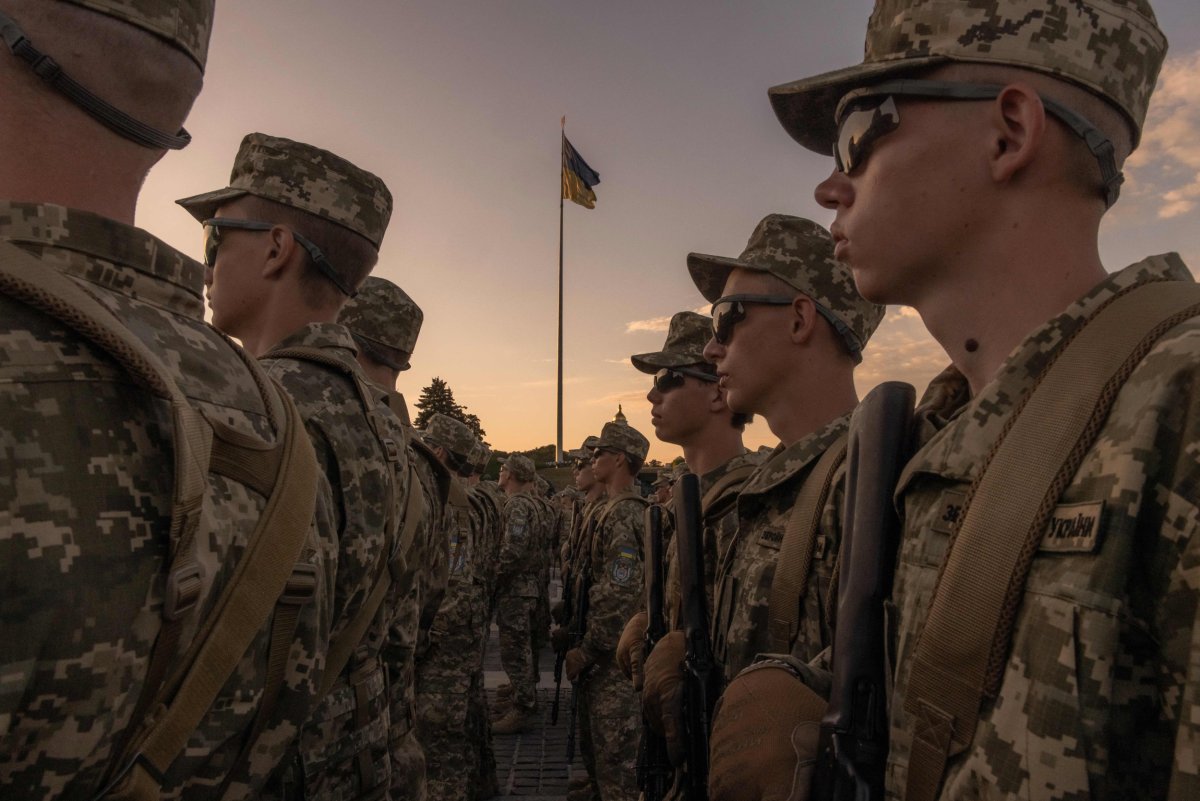As leading American politicians, generals, and pundits continue advocating for open-ended support to Kyiv in their war against Russia, a sober, accurate analysis of Ukraine's nearly completed summer offensive reveals that the heroic sacrifice Ukraine continues to make is producing little to no meaningful progress toward the objective of evicting Russia from Ukraine's territory.
Washington should instead employ a necessary course correction and form a new policy, based on the harsh, ground-truth combat realities in Ukraine. Revising the objectives would give Washington and Kyiv a chance to preserve Ukrainian lives and American interests.
Washington's current policies do neither.
Despite great hopes for a rapid success, Ukraine's months-in-the-making offensive has sputtered from the outset. That shouldn't have surprised anyone in the White House. On April 5, two months before the start of the offensive, I wrote that "Zelensky's troops—with little to no air power and a dearth in artillery ammunition—could suffer egregious casualties while gaining little."
Five days later, The Washington Post revealed the contents of a leaked Top Secret U.S. intelligence assessment which likewise predicted the Ukrainian offensive would probably fall "well short" of expectations, and that "enduring Ukrainian deficiencies in training and munitions supplies probably will strain progress and exacerbate casualties during the offensive." Total Ukrainian deaths in the war at that point were estimated to be as low as 17,500.
About a month before the start of the offensive, I again warned that the odds were stacked heavily against Kyiv. To succeed, I explained, Ukraine would "have to conduct the most difficult task in modern land warfare: a combined arms operation into the teeth of a dug-in enemy force that is prepared for an attack," complicated by the shortage of artillery ammunition along with "limited airpower and minimal air defense." Nevertheless, on the eve of battle, some Western analysts remained optimistic.
Once the offensive began on June 5, however, that optimism quickly evaporated. In the first two weeks of the fighting, Ukraine's spearhead brigades suffered massive losses in armor and personnel while capturing virtually no territory. By the end of the third week, they had lost an estimated fifth of their strike force, requiring Ukraine to dramatically change tactics. Instead of leading with tanks and other armored vehicles (which were predictably getting chewed up in minefields and by Russian anti-tank missiles and artillery shells), Ukraine moved to an infantry-centric attack system.
While this change did result in producing incremental gains, the cost was exorbitant. On Aug. 29, the BBC reported that new leaked reports suggested Ukrainian battle deaths exploded since the offensive started. Whereas Ukraine was reported to have lost 17,500 troops in the first year of the war, it is presently assessed to have lost a breathtakingly high 50,000 additional deaths, for a total of 70,000 dead and 120,000 wounded.

If it wasn't clear to Washington before the offensive started that the fundamentals of combat operations and principles of war indicated Ukraine would likely fail, it should now be crystal clear. Although Ukraine appears to have finally penetrated the first line of Russia's main defense, the most difficult part of Russia's defensive system has yet to be overcome: the hundreds of kilometers of dragon's teeth, tank ditches, and yet more vast minefields.
It is unclear at this point whether Ukraine has enough striking power remaining in its offensive forces to reach, much less penetrate, Russia's second main line—beyond which is a third main line followed by a fortress-defense at Tokmak, which is still 75 road kilometers from the Azov coast. Given these realities, the best Ukraine can likely do for the rest of the year is to hold what they have and prevent the possibility of losing more territory to a potential Russian counteroffensive this fall.
The United States, however, would be wise to adjust its policies to reflect the reality of Ukraine's slim chances against Russia's fortified lines. Washington has spent nearly $113 billion over the course of this war, provided Ukraine with an astounding volume of modern arms and ammunition, and delivered an impressive array of training and intelligence support. After almost a year of preparation, it hardly dented the Russian lines.
There is no realistic basis, therefore, to believe that Ukraine has the capacity to attain its stated strategic objective to reclaim all its territory, including Crimea. What is realistic is to continue providing Kyiv with the military wherewithal to defend itself from further Russian incursions. This goal should be combined with shifting an increasing percentage of the burden for additional arms and ammunition to our rich European friends. The U.S. should continue to ensure the war does not expand beyond the borders of Ukraine, and increase diplomatic efforts with all relevant parties to end the war on the best terms possible for Kyiv—all of which are beneficial to American interests.
Rather than repeating over the next year and a half what has already not worked—potentially costing Ukraine yet additional hundreds of thousands of losses—it's time to try something that has a chance to succeed. In other words, it's time to acknowledge objective reality and employ policies that can work.
Daniel L. Davis is a senior fellow for Defense Priorities and a former lieutenant colonel in the U.S. Army who deployed into combat zones four times. He is the author of The Eleventh Hour in 2020 America. Follow him @DanielLDavis1.
The views expressed in this article are the writer's own.
Uncommon Knowledge
Newsweek is committed to challenging conventional wisdom and finding connections in the search for common ground.
Newsweek is committed to challenging conventional wisdom and finding connections in the search for common ground.
About the writer
To read how Newsweek uses AI as a newsroom tool, Click here.








